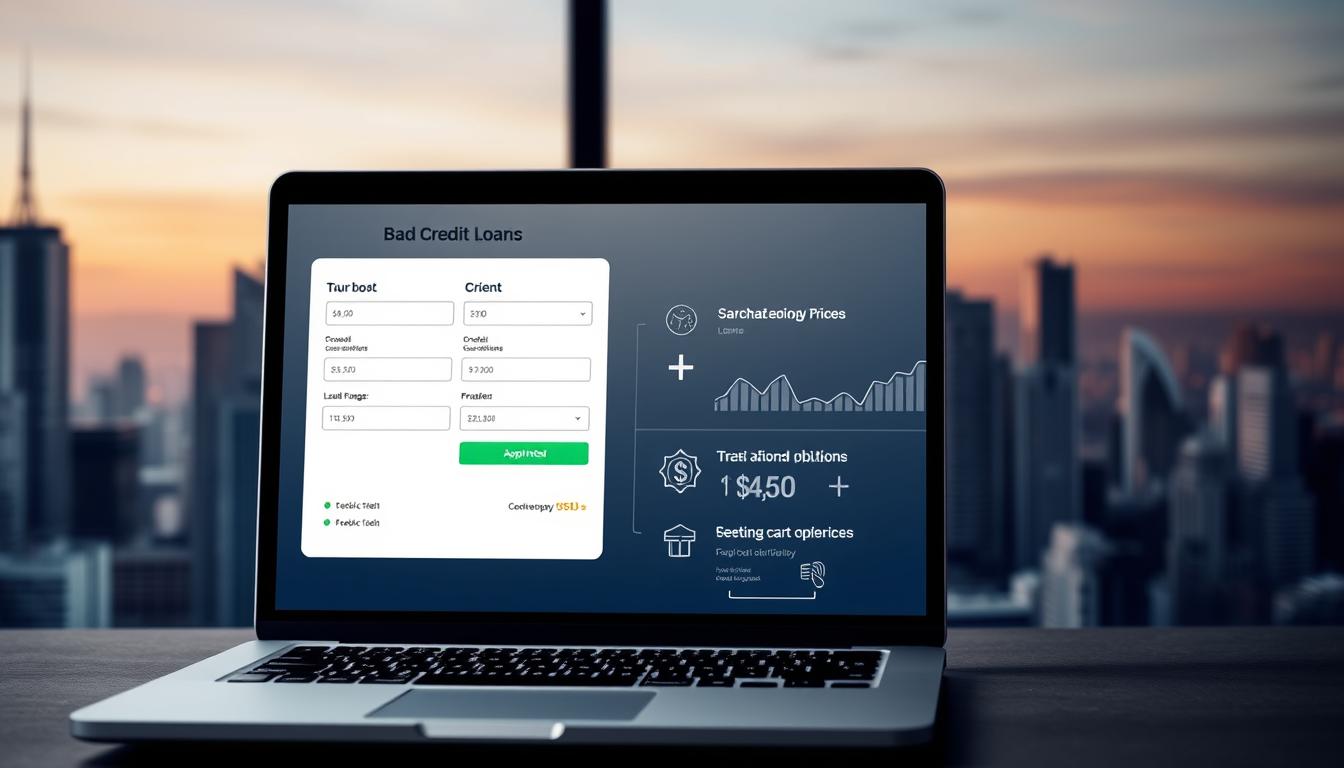Unlock Your Home’s Equity with an Equity Loan
Owning a home is a big deal, but many don’t know their home’s hidden value. This value, called home equity, is a strong financial tool. Did you know that millions of homeowners in the United States are sitting on a substantial amount of untapped equity?
We can use this equity to reach our financial dreams. Whether it’s for a dream vacation, paying off debt, or improving our home. Knowing how to access this resource is key. An equity loan lets homeowners borrow against their property’s value.
Key Takeaways
- Home equity is the value built up in a homeowner’s property.
- An equity loan allows borrowing against this value.
- Homeowners can use equity to fund various financial goals.
- Understanding equity loans is essential for making informed financial decisions.
- Equity loans can offer a flexible financial solution for homeowners.
What is an Equity Loan?
An equity loan lets homeowners borrow against their home’s value. The value of your home’s equity is the difference between its current market value and your mortgage balance.
To get the basics, let’s dive deeper. Home equity is a valuable asset for homeowners. An equity loan lets you tap into this asset. The loan comes with a fixed interest rate and is given as a lump sum.
Definition and Basics
An equity loan is like a second mortgage on your home. It lets you borrow a lot of money based on your home’s equity. The main features of an equity loan are:
- A fixed interest rate, so your monthly payments stay the same.
- A lump sum disbursement, giving you the loan amount upfront.
- A repayment term that can vary, usually between 5 to 15 years.
For example, if your home is worth $200,000 and you owe $120,000, you have $80,000 in equity. Lenders usually let you borrow up to 80% or 85% of this equity.
Difference Between Home Equity Loan and HELOC
It’s important to know the difference between a home equity loan and a Home Equity Line of Credit (HELOC). Both let you use your home’s equity, but they work differently:
| Feature | Home Equity Loan | HELOC |
|---|---|---|
| Disbursement | Lump sum | Revolving line of credit |
| Interest Rate | Fixed | Variable |
| Repayment | Fixed monthly payments | Variable payments based on usage |
A home equity loan gives you a one-time payment. A HELOC offers a line of credit you can use as needed. Knowing these differences helps you choose the right option for your financial needs.
How Does an Equity Loan Work?
Understanding an equity loan is key for homeowners wanting to use their home’s value. An equity loan lets homeowners borrow money using their home’s equity as security.
The Application Process
To start with an equity loan, you’ll need to apply. This involves:
- Submitting financial info, like income and credit history
- Sharing property details, like its value and any mortgages
- Waiting for the lender to review and approve your loan
The lender will check your credit and home value to decide on the loan amount and rate. Meeting the equity loan requirements is crucial for approval. You’ll need a good credit score and a manageable debt-to-income ratio.
Disbursement of Funds
After approval, the lender gives you the loan money as agreed. Usually, you get the money all at once to use as you wish.
It’s vital to manage your loan well and pay on time. This avoids harming your credit score or risking foreclosure.
Knowing how to get an equity loan helps you decide if it’s right for you. It can be useful for consolidating debt, financing home improvements, or covering unexpected costs.
Benefits of Taking Out an Equity Loan
Equity loans are great for financing big expenses. Homeowners can use their property’s value to get funds at good rates.
Low Interest Rates Compared to Other Loans
Equity loans have low interest rates compared to other loans. For example, credit cards and personal loans have higher rates. This makes equity loans cheaper for borrowers.
When looking for the best equity loan lenders, compare rates. This helps find the best deal.
Equity loan rates are low because they’re secured by your home. This security lets lenders offer better rates. It helps homeowners get the funds they need.
Potential Tax Benefits
Equity loans also offer tax benefits. You might be able to deduct the interest from your taxes. This can save you a lot of money.
But, always talk to a tax expert. They can explain how these benefits apply to you.
The tax benefits and low rates make equity loans appealing. They’re good for financing big things like home improvements or education.
Who Should Consider an Equity Loan?
Knowing who should think about an equity loan is key to smart money choices. An equity loan is great for homeowners with enough equity in their homes. It’s a way to get cash.
Homeowners with Sufficient Equity
Homeowners with a lot of equity can use an equity loan to access their home’s value. An equity loan calculator helps figure out how much equity you have. This can help with home improvements, paying off debt, or unexpected costs.
Individuals Seeking Debt Consolidation
People with many debts, like credit cards or personal loans, might want to consolidate. An equity loan can simplify finances and lower interest payments. It can also make monthly payments easier and improve financial stability.
Before getting an equity loan, it’s important to understand equity loans. Know the loan terms, interest rates, and how to pay it back. This helps homeowners decide if an equity loan is good for them.
Common Uses for Equity Loans
Equity loans are a flexible financial tool for homeowners. They can be used for big expenses or long-term goals. This way, homeowners can make the most of their home’s value.
One key advantage of equity loans is their flexibility. Unlike other loans, equity loans don’t have specific uses. Homeowners can use the funds as they wish.
Home Renovations and Repairs
Financing home improvements is a common use for equity loans. Whether it’s a new kitchen, extra bedroom, or fixing a roof, equity loans help. They provide the funds needed to enhance or maintain a home’s value.
For example, a homeowner might use an equity loan for:
- Renovating outdated bathrooms
- Replacing old flooring
- Upgrading to energy-efficient appliances
| Renovation Project | Average Cost | Potential Return on Investment |
|---|---|---|
| Kitchen Renovation | $20,000 – $50,000 | 80% – 100% |
| Bathroom Renovation | $10,000 – $30,000 | 70% – 90% |
| Roof Replacement | $8,000 – $20,000 | 50% – 70% |
Education Expenses
Equity loans are also great for covering education costs. They can help fund a child’s education or further education for the homeowner. This makes them a valuable funding source.
For example, an equity loan can cover tuition, living costs, or other education expenses.
When thinking about using an equity loan for education, consider the benefits and costs. Look at interest rates, repayment terms, and any tax benefits.
Understanding Loan Terms and Conditions
It’s important to know the details of loan terms and conditions if you’re getting an equity loan. The terms and conditions can affect your financial duties and how you’ll pay back the loan.
One key part of loan terms is the interest rate. Equity loans can have fixed or variable interest rates. Fixed interest rates stay the same, making your monthly payments predictable. Variable interest rates can change with the market, which might alter your monthly payments.
Fixed vs. Variable Interest Rates
Choosing between fixed and variable interest rates depends on your financial situation and the market. If rates are low, a variable rate might be good. But if rates are likely to go up, a fixed rate could be better.
“The choice between a fixed and variable interest rate depends on your risk tolerance and financial goals.” – Financial Expert
| Interest Rate Type | Characteristics | Benefit |
|---|---|---|
| Fixed | Remains constant throughout the loan term | Predictable monthly payments |
| Variable | Can change based on market conditions | Potential for lower rates if market conditions improve |
Length of the Loan Term
The length of the loan term is also crucial. Equity loans can last from 5 to 15 years. A longer term means lower monthly payments but more interest paid over time.

When picking a loan term, think about your monthly budget and the loan’s total cost. Also, consider if you can pay off the loan early without extra fees.
By carefully looking at the loan terms, including interest rates and terms, you can choose wisely. This choice should fit your financial goals and situation.
Potential Risks of Equity Loans
It’s important to know the risks of equity loans before deciding. Equity loans can help with money needs but also come with big risks.
Risk of Foreclosure
One big risk is foreclosure. If we can’t pay the loan, the lender might take our home. This could mean losing our property.
To avoid this, we should check our finances first. Make sure we can handle the monthly payments. Also, look for loan terms that offer help if we’re struggling.
Market Fluctuations
Another risk is changes in the housing market. Our home’s value can go up and down. If the market drops, we might owe more than our home is worth.
To deal with this, keep up with local real estate news. Think about the long-term effects of an equity loan. Getting advice from financial experts can also help.
| Risk | Description | Mitigation Strategy |
|---|---|---|
| Foreclosure | Risk of losing your home if you default on the loan | Carefully review your financial situation, ensure affordable monthly payments, and look for flexible loan terms |
| Market Fluctuations | Changes in your home’s value affecting available equity | Stay informed about local real estate trends, consider long-term implications, and consult financial advisors |
Knowing these risks and how to reduce them can help us decide if an equity loan is right for us.
How to Qualify for an Equity Loan
Understanding the qualification process is key when applying for an equity loan. Lenders look at different factors to see if you can handle the loan payments.
Credit Score Requirements
A good credit score is crucial for getting an equity loan. Most lenders want a score of 620 to 650. But, some might ask for a higher score, so it’s smart to check and improve it if you can.
To boost your credit score, pay bills on time, reduce debt, and avoid new credit checks. A better score means you’re more likely to get approved and might even get a lower interest rate.
Debt-to-Income Ratio
Your debt-to-income (DTI) ratio is also important. It’s your total monthly debt divided by your income. Lenders usually like a DTI of 43% or less, but some might go up to 47%.
To lower your DTI, pay off high-interest debts or make more money. This makes you a stronger candidate for a loan and improves your financial health.
Improving your credit score and managing your DTI can help you qualify for an equity loan. It’s also smart to compare offers from different lenders to find the best deal for you.
Comparing Lenders for Equity Loans
Looking for the right equity loan is crucial. Many financial institutions offer these loans. It’s important to compare their rates and terms to find the best one for you.
Researching Trusted Financial Institutions
Start by looking at well-known banks and credit unions. They often have good rates and a solid reputation. Make sure they are clear about their loan terms, including any fees.
Check online reviews and ask friends for recommendations. Also, verify the lender’s credentials with financial regulators. Top lenders include Wells Fargo, Bank of America, and Chase, as well as online and local credit unions.

Evaluating Offers and Rates
After finding potential lenders, compare their offers. Look at the annual percentage rate (APR), loan term, and any fees.
| Lender | APR | Loan Term | Fees |
|---|---|---|---|
| Wells Fargo | 4.5% | 10 years | $500 origination fee |
| Bank of America | 4.2% | 15 years | $300 origination fee |
| Chase | 4.8% | 12 years | $200 origination fee |
By comparing these details, you can find the best equity loan for you. This will help you achieve your financial goals.
Don’t forget to consider customer service and how willing the lender is to work with you. A lender that offers flexible terms and good support can greatly improve your experience.
Alternatives to Equity Loans
Equity loans are not the only choice for homeowners. There are other financial options to consider. Knowing these alternatives is key for those looking to use their home’s value.
Personal Loans
Personal loans are a simple way to get money without using your home as collateral. They are unsecured, so you won’t lose your home if you can’t pay back the loan. But, they might have higher interest rates and smaller loan amounts.
When looking at a personal loan, check the lender’s terms. Look at the interest rate, how long you have to pay it back, and any fees. For more info on personal loans compared to other options, visit this resource.
Cash-Out Refinancing
Cash-out refinancing lets you refinance your mortgage for more than you owe. This way, you get the extra money. It’s good if you want to use your home’s equity and might get a better interest rate than other loans.
But, think about the downsides. It might extend your mortgage term or increase your loan balance. Weigh the good against the bad, like higher monthly payments or closing costs.
In summary, while equity loans are common, personal loans and cash-out refinancing might be better for some. Understanding each option’s pros and cons helps you choose wisely for your financial goals.
Managing Your Equity Loan Responsibly
To get the most out of your equity loan, managing it well is crucial. This means knowing your financial duties and planning smart. An equity loan calculator helps figure out how much you can borrow and how to pay it back.
Creating a Budget
First, make a budget to manage your equity loan. Look at your income and expenses to see how much you can pay each month. Use a budgeting app or spreadsheet to keep track of your money.
A good budget covers your loan payments to avoid missing payments. It’s smart to also plan for unexpected costs.
Avoiding Overextension
It’s important not to borrow too much with an equity loan. Borrowing more than you need can make your monthly payments too high. Use an equity loan calculator to find out how much you can safely borrow and understand the repayment terms.
| Loan Amount | Interest Rate | Monthly Payment |
|---|---|---|
| $50,000 | 6% | $322 |
| $75,000 | 6.5% | $474 |
| $100,000 | 7% | $665 |
By planning and managing your equity loan wisely, you can enjoy its benefits without financial stress. Remember, borrowing responsibly is essential for financial health.
Conclusion: Is an Equity Loan Right for You?
Whether an equity loan is right for you depends on your personal situation and financial goals. It’s important to understand what equity loans are and what you need to qualify. This knowledge helps you make a smart choice.
Key Considerations
Think about your credit score, how much debt you have, and your income. Also, consider the risks, like losing your home if you can’t pay back the loan.
Making an Informed Decision
To decide wisely, look at your finances closely. Research and compare different lenders. This way, you can find a loan that fits your budget and goals. Knowing your options helps you see if an equity loan is right for you.









